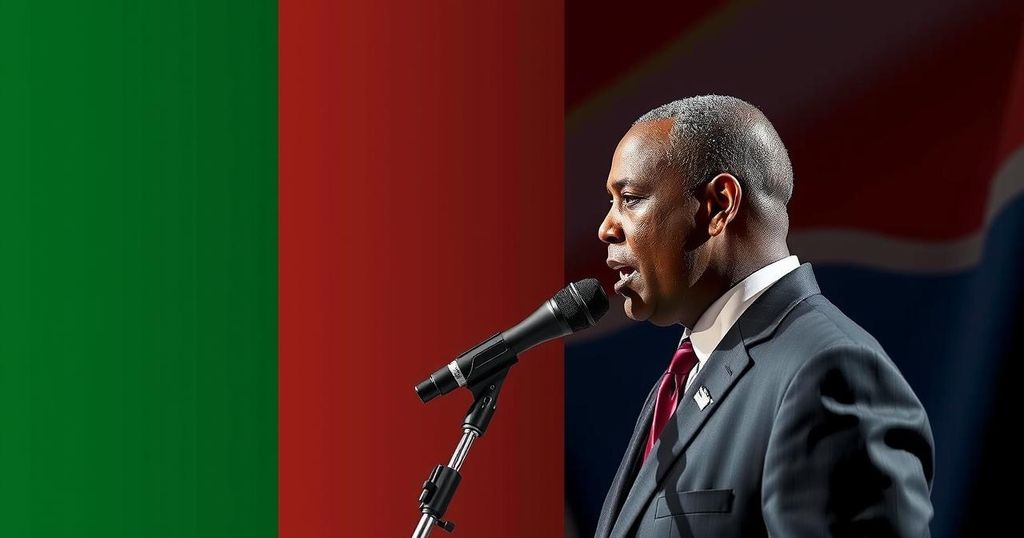Namibia’s Historic Presidential Election: A Chance for Female Leadership

Namibia’s presidential election on November 27, 2024, features vice president Netumbo Nandi-Ndaitwah as a leading candidate, potentially the country’s first female leader. Amid rising public discontent over unemployment, this election marks a crucial moment in Namibian politics. With over 1.4 million voters, the outcome may challenge SWAPO’s dominance since independence.
Namibia is poised for a historic presidential election as citizens cast their votes on November 27, 2024. The current vice president, Netumbo Nandi-Ndaitwah, is a leading candidate representing the ruling South West Africa People’s Organization (SWAPO). Nandi-Ndaitwah, a veteran of the independence movement, is in contention to potentially become the nation’s first female leader. The election comes at a time when SWAPO faces increasing public discontent due to high unemployment and economic challenges, particularly among the youth. With approximately 1.4 million registered voters, this election could significantly reshape Namibia’s political landscape, especially if it leads to a runoff, which has never occurred in the country’s history.
The recent demise of President Hage Geingob has intensified the political stakes, with newly appointed head of state Nangolo Mbumba having taken over. Nandi-Ndaitwah has proposed a robust economic plan aimed at job creation, pledging to allocate around 85 billion Namibian dollars to generate over 500,000 jobs. However, her ambitious goals have drawn skepticism from critics who deem them impractical. Furthermore, the election is characterized not only by presidential candidates but also by ongoing discussions surrounding issues affecting women’s rights, healthcare access, and equal pay in Namibia.
As a nation that gained independence in 1990 from South African control, Namibia has a fragile political environment dominated by SWAPO for the last 34 years. In recent years, the party has experienced a drop in popularity, culminating in its lowest electoral share in the 2019 national election. Democratic ideals face challenges as evident from regional trends where ruling parties in neighboring countries have faced drastic losses. The current socioeconomic climate, marked by a significant unemployment rate, particularly among young citizens, has catalyzed an urgent demand for change. Moreover, Nandi-Ndaitwah’s candidacy represents a pivotal moment for female representation in leadership, a rarity on the continent.
In summary, Namibia’s upcoming presidential election stands as a potential turning point in its political history, particularly with the candidacy of Netumbo Nandi-Ndaitwah as a female leader. Amidst various socioeconomic issues and historical patterns of political unrest in the region, the outcome could signal a shift in governance for the southwestern African nation. As voters head to the polls, the implications of their choices not only affect Namibia but could resonate beyond its borders.
Original Source: apnews.com






